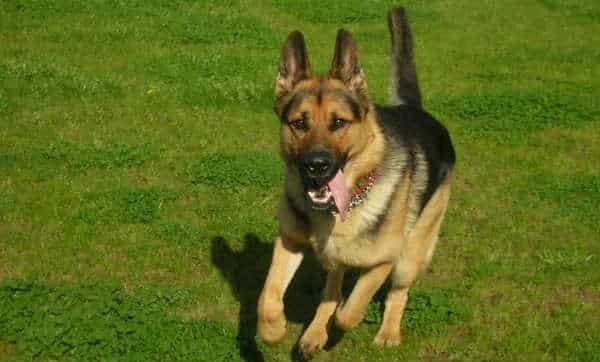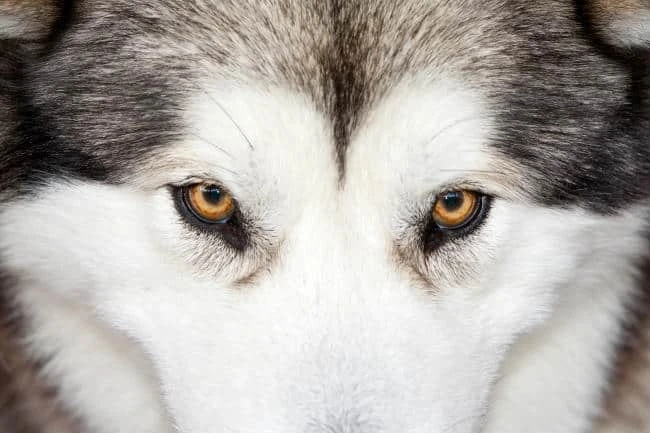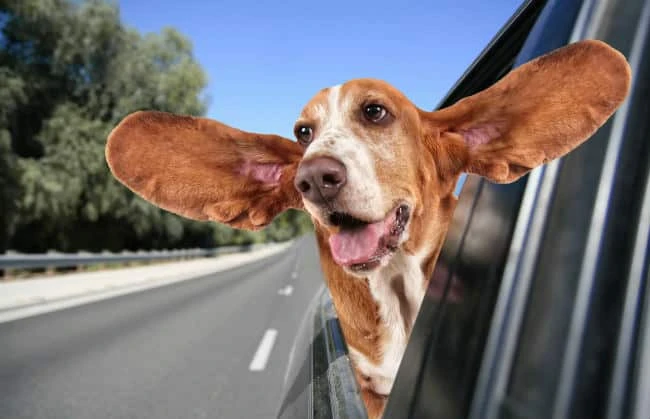Dog Owners Guide to Canine Asthma

Canine Asthma occurs when there is a spasmodic contraction of your dog or puppy’s bronchi. This condition can come on suddenly causing extreme distress including rapid or shallow breathing that can last for a few minutes at a time. This is a serious condition and in some cases it can be fatal.
This condition can be more common in certain breeds (in fact the Maltese Terrier is more prone to developing it) it is unclear why this is the case but it may be as a result of genetics. The symptoms of Asthma in dogs are also very similar to Bronchitis.
What are the Bronchi
The Bronchi are two tubes (passages) that go from the wind pipe (trachea) to both lungs. After they have reached the lungs they will branch into much smaller passages called Bronchioles helping to diffuse air through each lung.
What causes canine Asthma?
This condition is also referred to as allergic bronchitis and is often caused by your dog inhaling allergens (bacterial or fungal). Pollen and dust can also cause an allergic reaction – so a dog that sniffs flowers could inadvertently inhale allegens leading to allergic bronchitis (Asthma). As the Bronchi start to fill up with mucus they will contract and spasm resulting in your dog developing a harsh cough or rapid and shallow breathing. Other causes of the condition can include stress.
Although any dog can develop this condition it is more common in middle age dogs – any owners that like to smoke should also be aware that this can trigger an asthmatic episode (not only that but it can cause Cancer too – so please pet lovers if you smoke take it outside)!
Diagnosing this condition will often involve the vet speaking in-depth with the owner and looking at the dog’s previous medical history. For example if by examining your dog’s previous medical history every summer (when the pollen count is high) your dog has an asthma attack this will of course help to inform the vet’s diagnosis.
The vet will also undertake a thorough medical examination as heart worms can cause similar symptoms and the vet will need to rule out any serious underlying causes (heart worm can be fatal). Other forms of diagnosis may include a chest X-ray (as this will help to eliminate the possibility of a chest infection or possible obstruction from a foreign body).
By looking at your dog’s medical history and the current symptoms the vet also will need to determine that the condition is definitely Asthma and not a heart problem as this can also cause similar symptoms.
Canine asthma symptoms
The symptoms of asthma in dogs are very similar to the symptoms seen in humans. Symptoms will include wheezing, shortness of breath, rapid and shallow breathing, loss of appetite and lethargy. If your dog develops a bad case of Asthma during an episode the gums may appear purplish in color.
Canine asthma treatment
The treatment for this condition will often depend on the cause. The main reason for this is that a dog that develops an asthma attack from allergens may benefit from antihistamines (however the same treatment would not benefit a dog that has developed the condition through stress). Some of the most common treatments for the condition can include…
1. Steroids – These do have some side effects and are not always favoured by pet owners. Steroids are often used to reduce any inflammation which can lead to breathing problems, wheezing and coughing.
2. Oxygen – During an asthma attack a dog’s lungs will become deprived of vital oxygen and as the attack progresses the dog can become more anxious resulting in the heart rate increasing simply exacerbating the situation. Oxygen treatment can be used to provide the vital oxygen needed during an episode.
3. Antihistamines – Many cases of Asthma are as a result of allergens that your dog’s body has reaction to (causing the asthma attack). Just like in humans antihistamines can be prescribed to treat the condition.
4. Bronchodilators – These can be prescribed and are often used with humans – however they are sometimes difficult to use with dogs due to the problems getting them to inhale at the required time.
Can dogs cause Asthma in humans
The simple answer to this is yes. In fact recent research has discovered that the hair on dogs actually has a worst affect on people with asthma than Cat fur.
Here are some things you can do…
1. Try and avoid anything in the House that may contribute to the condition. This means vacuuming regularly, not using deodorisers (you know those nice smelly things that you leave around the House). You should always avoid smoking around your dog or using any herbicides or pesticides in close proximity to any pets.
2. Obesity is not only a cause of Asthma it can be a contributing factor in Bronchitis too. So try and feed your dog a healthy balanced diet and avoid giving your pooch junk food or table scraps. A healthy inside also means a healthy immune system (which is important when it comes to fighting disease or infections).
3. If your dog does develop Asthma or Bronchitis try to avoid walking your dog in really cold weather. To avoid any strain around the wind pipe you should also consider using a harness rather than a conventional collar and leash.
What should I do if my dog has an asthma attack?
Hopefully you would have already received a diagnosis and some advice on what you should do if your dog has an asthma attack. Of course the first thing you should do is phone your vet (you can then get advice over the phone). Below are some top tips on what you should do to alleviate the symptoms…
1. It is possible that you may have inadvertently triggered your dog’s attack. If you have been smoking in the same room or have recently been doing some dusting then you should remove your dog to somewhere that the air is clean and fresh.
2. Try and calm your dog. Having an asthma attack is a scary experience so you need to reassure your pooch and make him feel more comfortable. Open the window or turn on the fan as this will help circulate some air. If your dog’s attack is not improving then put him in a travel crate and take him straight to the vet’s.
3. If your dog’s breathing or heart stops then you will need to perform emergency treatment yourself. Below is a guide to performing CPR.
How to perform CPR on your dog…





